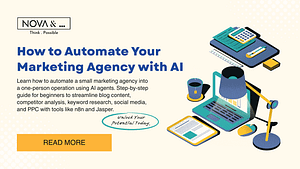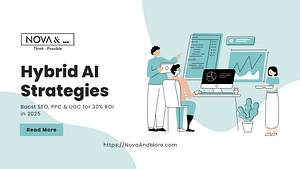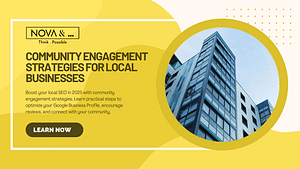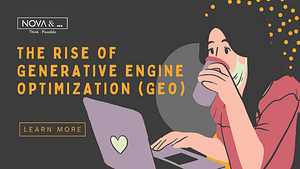When it comes to driving traffic and generating leads, two strategies dominate the digital marketing landscape: SEO (Search Engine Optimization) and PPC (Pay-Per-Click). Both have their strengths and weaknesses, but how do you know which one to use—or whether to use both?
In this updated guide for 2025, we’ll break down the key differences between SEO and PPC, explain when to use each, and show you how to combine them for maximum results. We’ll also dive into the latest trends shaping these strategies, ensuring you stay ahead of the curve. Whether you’re a small business owner or a seasoned marketer, this article will give you actionable insights to grow your online presence.
What is SEO?
SEO is the process of optimizing your website to rank higher in organic (unpaid) search results. It involves a variety of techniques, including:
- Keyword research and on-page optimization: Ensuring your content targets the right keywords and is structured for search engines.
- Building high-quality backlinks: Earning links from authoritative websites to boost your site’s credibility.
- Improving site speed and user experience: Making your website fast, mobile-friendly, and easy to navigate.
Pros of SEO:
- Long-Term Results: Once you rank well, traffic is free and consistent.
- Trust and Credibility: Organic rankings are often seen as more trustworthy by users.
- Cost-Effective: After the initial investment, there are no direct costs for clicks.
Cons of SEO:
- Time-Consuming: It can take months (or even longer) to see significant results.
- Algorithm Dependence: Changes in search engine algorithms, like Google’s updates, can impact your rankings.

Latest SEO Trends for 2025:
SEO is constantly evolving, and 2025 brings new challenges and opportunities. Here are the key trends to watch:
- AI Overviews and Search Generative Experience:
- Google’s AI Overviews provide direct answers to user queries at the top of search results, potentially reducing clicks to organic listings.
- How to Adapt:
- Create comprehensive, high-quality content that is likely to be cited in AI Overviews.
- Use structured data (schema markup) to help search engines understand your content better.
- Focus on E-E-A-T (Experience, Expertise, Authoritativeness, and Trustworthiness) to increase the chances of your content being featured.
- Monitor your traffic using tools like Google Analytics to understand how AI Overviews are impacting your site.
- User Experience Optimization:
- Beyond site speed, focus on Core Web Vitals, which measure loading performance, interactivity, and visual stability.
- Ensure your site is mobile-friendly and offers a seamless experience across devices.
- Search engines are increasingly prioritizing websites that provide a great user experience.
- AI in Content Creation:
- AI tools can help generate content quickly, but maintaining originality and value is crucial.
- Use AI for optimization and ideation, but ensure human oversight for quality and authenticity.
- Tools like Semrush or Conductor can help you optimize content for both search engines and users.
What is PPC?
PPC is a paid advertising model where you pay each time someone clicks on your ad. Popular platforms include Google Ads, Microsoft Advertising (formerly Bing Ads), and social media ads (e.g., Facebook, Instagram).
Pros of PPC:
- Immediate Results: Campaigns can start driving traffic as soon as they go live.
- Targeting Options: Reach specific audiences based on demographics, location, behavior, and more.
- Scalability: Easily adjust your budget based on performance.
Cons of PPC:
- Costly: High competition can drive up costs, especially for competitive keywords.
- Short-Term Impact: Traffic stops when you stop paying.
Latest PPC Trends for 2025:
PPC is also evolving, with new strategies and platforms gaining prominence. Here are the key trends:
- Integration with SEO:
- Use PPC data to inform SEO strategies, such as identifying high-performing keywords or understanding user behavior.
- Remarket to users who clicked on PPC ads but didn’t convert using SEO-optimized content.
- Microsoft Advertising:
- Formerly Bing Ads, Microsoft Advertising is gaining traction with improved ad inventory and audience targeting.
- It can be a cost-effective alternative or complement to Google Ads, especially for certain industries or geographies.
- Long-Tail Keywords:
- Targeting long-tail keywords can help reach more specific audiences and potentially reduce competition in PPC auctions.
- These keywords are also valuable for SEO, making them a great area for integration between the two strategies.
SEO vs. PPC: Key Differences
Understanding the differences between SEO and PPC is crucial for choosing the right strategy—or combining both. Here’s a quick comparison:
| Aspect | SEO | PPC |
|---|---|---|
| Cost | Free (after initial investment) | Pay-per-click |
| Time to Results | Months | Instant |
| Traffic Quality | High intent, long-term | Immediate, targeted |
| Maintenance | Ongoing optimization | Continuous budget management |
When to Use SEO
SEO is ideal for businesses focused on long-term growth and building a sustainable online presence. Here are some scenarios where SEO shines:
- Long-Term Growth: If you’re building a sustainable online presence, SEO is your best bet.
- Budget Constraints: SEO is cost-effective in the long run, making it ideal for small businesses.
- High-Competition Keywords: Organic rankings can outperform paid ads for competitive terms over time.
Example: A local bakery invests in SEO to rank for “best cupcakes in Austin.” After 6 months, they’re on the first page, driving consistent traffic without ongoing costs.
When to Use PPC
PPC is perfect for businesses needing quick results or targeting specific, high-intent audiences. Here’s when PPC is the better choice:
- Quick Wins: Need immediate traffic for a product launch or event? PPC delivers fast results.
- Testing New Markets: Use PPC to test keywords and audiences before committing to SEO.
- High-Intent Campaigns: Target users ready to buy with specific ad copy and landing pages.
Example: An e-commerce store runs Google Ads for “buy running shoes online” during a holiday sale, driving immediate conversions.
How to Make SEO and PPC Work Together
SEO and PPC aren’t competitors—they’re complementary strategies. Here’s how to combine them for maximum impact:
- Keyword Insights: Use PPC data to identify high-performing keywords for SEO.
- Remarketing: Retarget users who clicked on PPC ads but didn’t convert using SEO-optimized content.
- Brand Dominance: Combine organic rankings with paid ads to dominate search results for your brand name.
- Content Amplification: Promote your SEO-optimized blog posts with PPC to boost visibility.
Pro Tip: Use tools like Google Analytics and Ahrefs to track the performance of both strategies and identify areas for improvement.
Measuring Success
To ensure your SEO and PPC efforts are effective, you need to track the right metrics. Here are the key performance indicators (KPIs) for each:
- For SEO:
- Organic traffic
- Keyword rankings
- Backlink profile
- Domain authority
- Conversion rates from organic sources
- For PPC:
- Click-through rate (CTR)
- Cost per click (CPC)
- Conversion rate
- Cost per acquisition (CPA)
- Return on ad spend (ROAS)
By monitoring these metrics, you can refine your strategies and maximize ROI.
Why Choose Nova & More?
At Nova & More, we specialize in creating integrated SEO and PPC strategies that deliver measurable results. Our services include:
- White Label SEO
- White Label Websites
- White Label Design
- Social Media Management
- White Label PPC Ads
We use data-driven approaches to optimize your ROI and provide ongoing support from keyword research to ad copywriting. Whether you’re looking to dominate search results or launch a high-impact PPC campaign, we’ve got you covered.
→ Schedule a Free Consultation ←
Conclusion
SEO and PPC are not mutually exclusive; they are complementary strategies. While SEO builds long-term growth, PPC delivers immediate results. By combining both, you can dominate search results and maximize your ROI.
Ready to take your digital marketing to the next level? Contact Nova & More for a tailored strategy today.
10 FAQs About SEO vs. PPC
It depends on your goals. SEO is better for long-term growth, while PPC is ideal for quick results.
SEO requires an upfront investment but has no ongoing costs. PPC requires a continuous budget for clicks.
Yes! Combining SEO and PPC can amplify your results. For example, use PPC data to inform your SEO strategy.
SEO typically takes 3-6 months to show significant results, depending on competition and effort.
You can launch a PPC campaign in as little as a few hours.
SEO generally has a higher ROI in the long term, but PPC can deliver immediate returns.
Yes, PPC data can reveal high-performing keywords and audiences to target with SEO.
PPC can be effective for small businesses with limited budgets, but SEO is more cost-effective in the long run.
The main risks are high costs and dependency on continuous spending.
Yes, an agency like Nova & More can provide expertise, tools, and strategies to maximize your results.
Citations
- Future of SEO: 5 Key SEO Trends (2025 & 2026)
- The 8 SEO Trends That Will Shape Search in 2025
- 17 PPC Trends for 2025 | PPC Management Agency
- PPC news, analysis, trends, tactics from Search Engine Land
- The Future of AI in SEO and Content Marketing in 2025
- 9 Biggest SEO Trends of 2025 & How to Leverage Them
- 15 Must-Follow PPC Trends to See Success in 2025
- 9 Must-Follow PPC Trends For Success in 2025
- Top 45 SEO Trends for 2025: The Future of SEO
Share this:
Related
Discover more from Nova & More
Subscribe to get the latest posts sent to your email.









